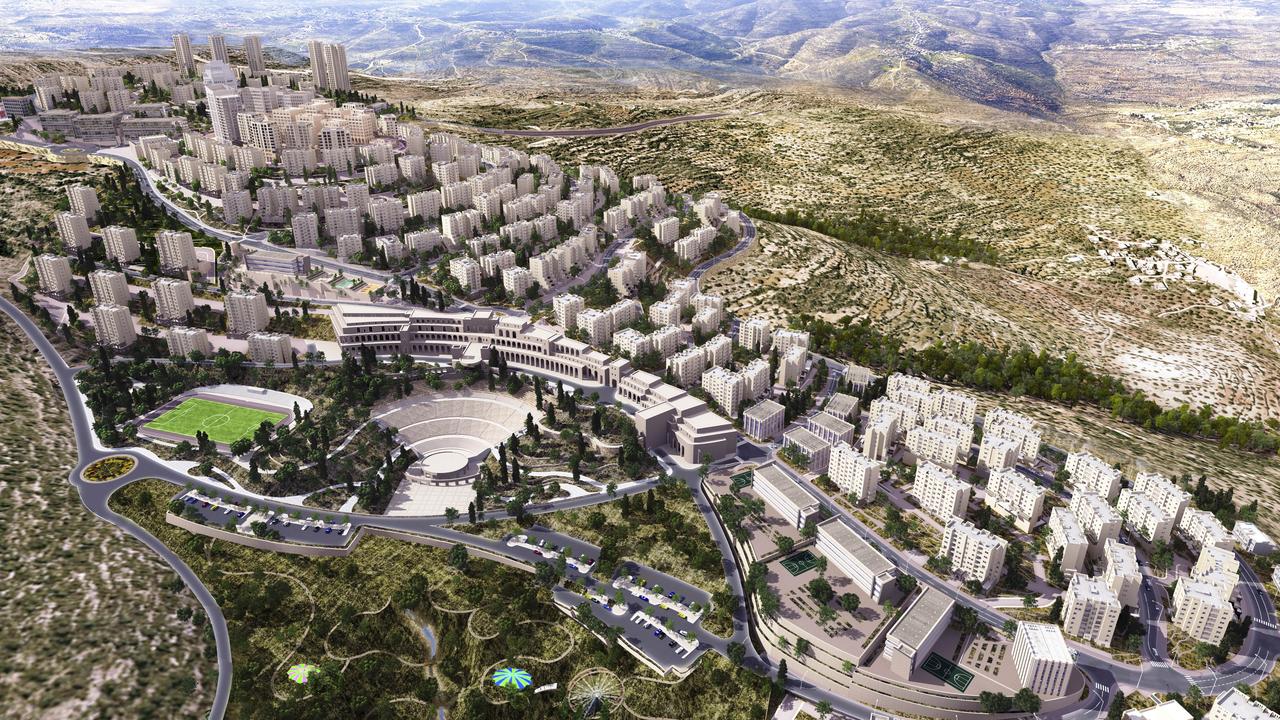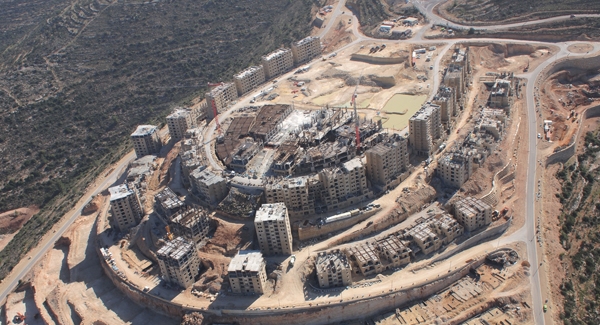
Rawabi: A Catalyst for Economic Growth
December 21, 2014 — Blog
Rawabi, meaning ‘hills’, is located centrally within the West Bank and is Palestine’s first planned city. It aims to improve living standards, boost employment and act as a major catalyst of economic growth. It accommodates a variety of lifestyles and is designed for a multi-religious population. Geo-political controversy has risen regarding the development, as Palestinians control the land on which Rawabi will be built, but not the area through which its access road will have to pass.

Key Facts
Date started: 2008
Intended population: 40,000
Size: 6.3 square kilometers
Estimated cost: USD $1 billion
Financing strategies: Rawabi is funded entirely by private investors, including the private Palestinian company Baher Real Estate Investment Company, one-third of which is owned by Massar International, Bashar Masri’s company, and two-thirds of which is owned by Qatari Diar Real Estate Company, a sovereign wealth company. Other investors include the Islamic Development Bank (Al-Aqsa fund), Palestine Investment fund, and various commercial banks. Rawabi has launched two programs to target middle class young professionals, a badly neglected market but a profitable one if strategically financed. Rawabi developers worked with banks to introduce mortgages for 25 years (down payment of 15%) and a lease-to-own program (down payment of 7.5%).
Planners / contractors: Bayati Real Estate Investment Company, AECOM (Raphael Samach), Palestine National Authority, Bayati Real Estate Investment Company
Environmental and sustainability strategies: Rawabi’s challenging location on top of a hill with extremely limited access to water means that it is prioritizing various water strategies (e.g., harvesting rain water from roofs and wastewater recycling). Over 10,000 trees have been planted to alter the microclimate and enrich the ecosystem. The city is dense, alleviating the need for car travel within the city and electric car charging stations will encourage the use of renewable energy.
Industries: The Rawabi economic growth strategy seeks to attract knowledge economy industries including IT, media, hospitality, pharmaceuticals and health care.
Energy sources: When Rawabi is operational, energy sources will include solar and wind technologies, and geothermal heating and cooling.
Precedents: Bashar Masri and his colleagues looked to many examples of cities they had traveled to or were familiar with. They looked broadly at a number of international cities in Europe, United States, the Middle East and Israel, specifically the Washington, D.C. area, western Virginia, Columbia, Maryland, Modai’in (Israel), Solidair in Beirut, 6th of October City and other new cities in the Cairo area to examine best practices and the types of social spaces that were successful.
Attractivity: Rawabi attempts to address Palestine’s massive housing shortage and provide a safe and stable place to live and do business. The central location means that residents can easily access Ramallah and other Palestinian cities. The services, outdoor recreation, pleasant outdoor spaces, walkable city center, childcare facilities, and accessibility to people with special needs are intended to attract people and businesses who cannot find these features in existing Palestinian cities.
Local challenges: Rawabi faces a number of challenges, both natural and human. The unique political situation means that the city must engage in complex negotiations for materials, labor and resources.
- While the Palestinian authorities are in support of the project, they have not followed through on the financial support they had initially committed, meaning that Rawabi is entirely privately funded.
- Water is a key challenge as all water sources for the city are controlled by Israel and negotiations for water access continue.
- Like most new cities, attracting requisite businesses can be a challenge and Rawabi is continuing to seek high-tech and other businesses to commit to relocating to Rawabi.
- The balance of people who have purchased homes in Rawabi currently skews towards the upper class, when the goal of the project is to provide housing for the lower and middle classes.
- Due to the geopolitics of the region, the access road to the city is another challenge.
- Creating jobs in IT and services is challenging because there is such limited movement between cities.
- Offsite infrastructure and all public facilities were originally going to be provided by the Palestinian authority, but to date nothing has come through.
Access the report from Cityquest – KAEC Forum 2013 here.